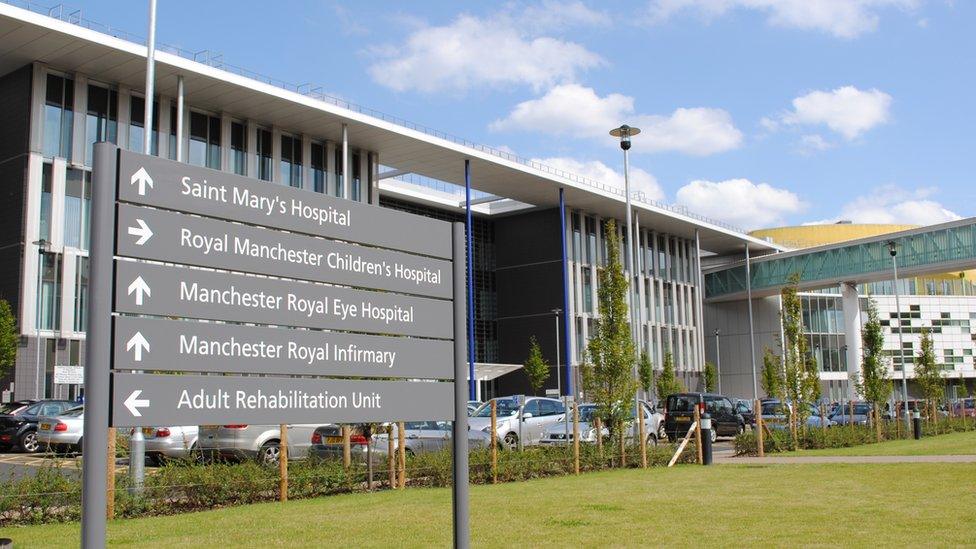Listeria outbreak: Meat supplier 'passed latest inspection'
- Published
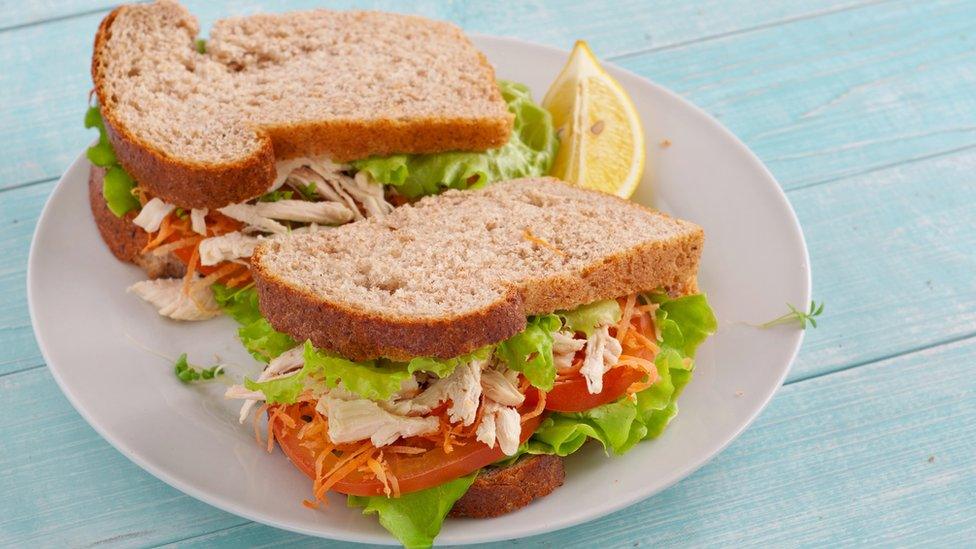
Five people have died after a listeria outbreak linked to pre-packed sandwiches and salads at hospitals
A meat supplier linked to a fatal listeria outbreak passed its latest safety inspection but had tested positive for the bacteria twice before.
Inspectors detected listeria at North Country Cooked Meats, in Salford, in 2009 and 2010.
None had been found since, Salford Council said, and an inspection this February found the firm "highly compliant with food regulations".
It has ceased production after hospital deaths linked to pre-packed sandwiches.
Five people have died after nine cases were confirmed at eight NHS trusts.
'Safety issues'
A council spokesperson said it carried out full annual inspections and six-monthly reviews at North Country Cooked Meats, with the latest being in February and October last year and February.
"Thorough investigations were carried out with environmental swabs taken and samples of the products sent for testing. All came back satisfactory," they said.
"The company was highly compliant with food regulations."
It said the firm had "acted promptly" in response to the positive listeria tests, and addressed the issue satisfactorily.
Public Health England said the health risk to the public remained low.
The Food Standards Agency said its investigation is looking into the whole food supply chain, including transport.
Manchester Central MP Lucy Powell has called for an end to food outsourcing in hospitals following the deaths.

Manchester MP Lucy Powell called for greater transparency
The Labour politician told Health Secretary Matt Hancock in the House of Commons there was a need for "more transparency".
She paid tribute to PHE and Manchester Royal Infirmary for "acting so quickly in identifying the source and closing that down" but said there were "wider questions".
"The what, the why, the how, there are still many questions we don't know the answer to," she said.
Ms Powell added: "This growth in outsourcing is leading to some real safety issues and potentially to these death themselves."
Mr Hancock, who earlier ordered a review of hospital food in response to the outbreak, responded: "There is a need to tell patients first and that has been the reason that the information has come out at the pace it has.
"That duty of candour is important but of course the review will lead to full transparency."
He said he agreed food needed to be "produced in-house whenever possible."
Products from the Staffordshire-based Good Food Chain, which supplied 43 NHS Trusts, have been withdrawn and production halted.
North Country Cooked Meats and North Country Quality Foods, which it distributed through, have also voluntarily ceased production.
PHE said evidence suggested affected patients ate the products before 25 May.
Two of the victims were at Manchester Royal Infirmary, with a third patient dying at Aintree Hospital, Public Health England confirmed.
Two more deaths were confirmed on Friday and more affected hospitals were named by the Health Secretary Matt Hancock on Tuesday.

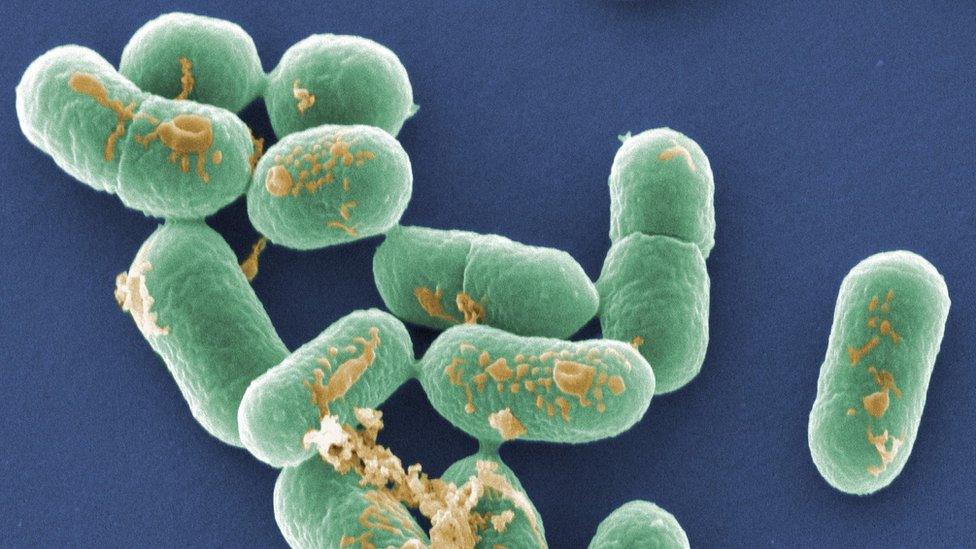
Listeria monocytogenes bacteria
What is listeria?
Listeria is a bacterium that can cause a type of food poisoning called listeriosis.
Normally, the symptoms are mild - a high temperature, chills, feeling sick - and go away on their own after a few days.
But in this outbreak, the cases occurred in people who were already seriously ill in hospital and they are most at risk of severe infection.
Listeria can then cause damage to organs, spread to the brain or bloodstream and be fatal.
In 2017, figures show there were 33 deaths linked to listeriosis in England and Wales.
Many types of food can become contaminated with listeria such as soft cheeses, chilled ready-to-eat foods like pre-packed salads, sandwiches and sliced meats, and unpasteurised milk products.
Pregnant women are advised to steer clear of soft cheese for this reason.
To reduce the risk, the NHS advises people keep chilled food in the fridge, heat food until it is piping hot and not eat food after its use-by date.

- Published17 June 2019
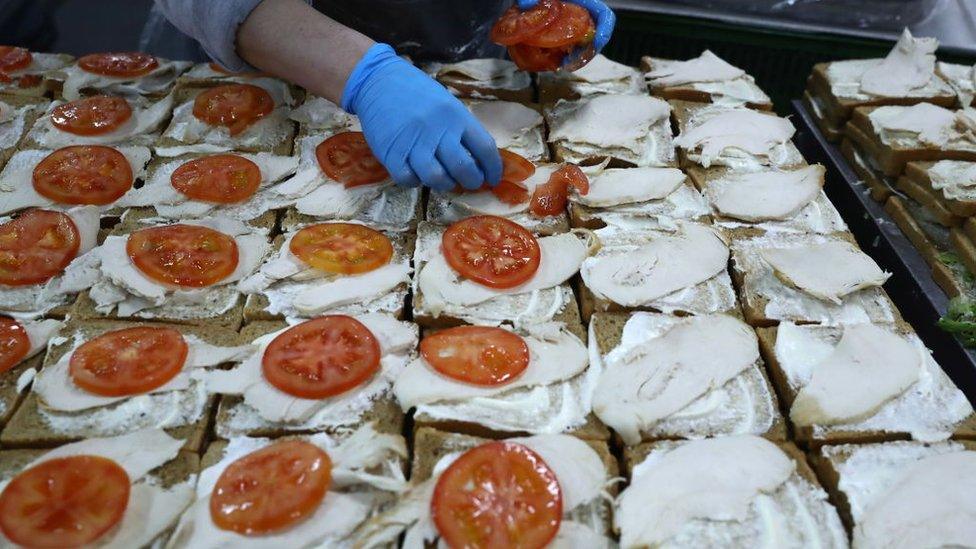
- Published17 June 2019
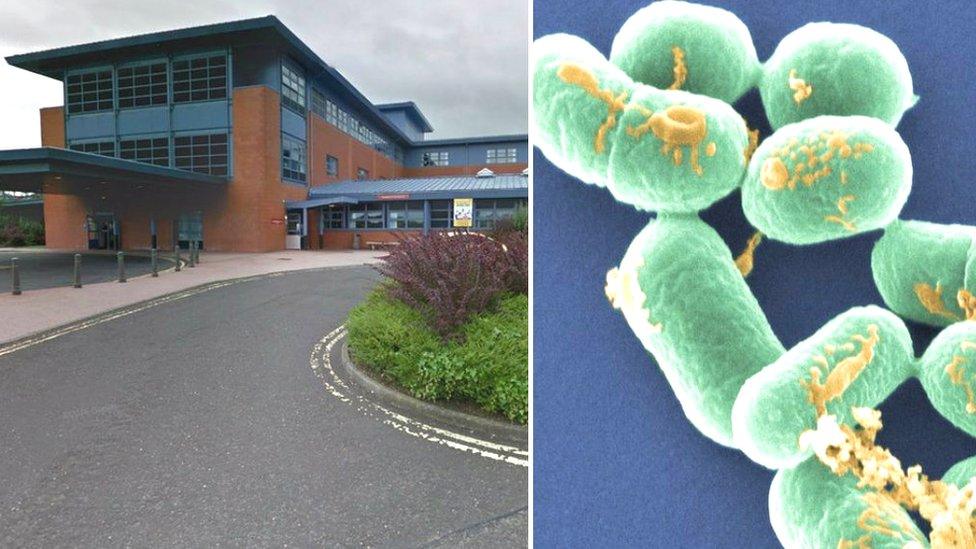
- Published15 June 2019

- Published14 June 2019
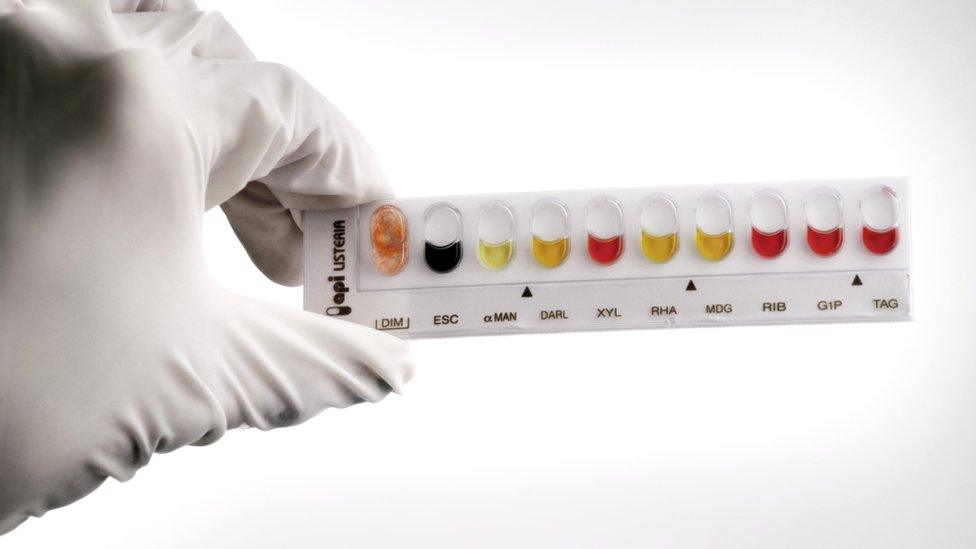
- Published10 June 2019
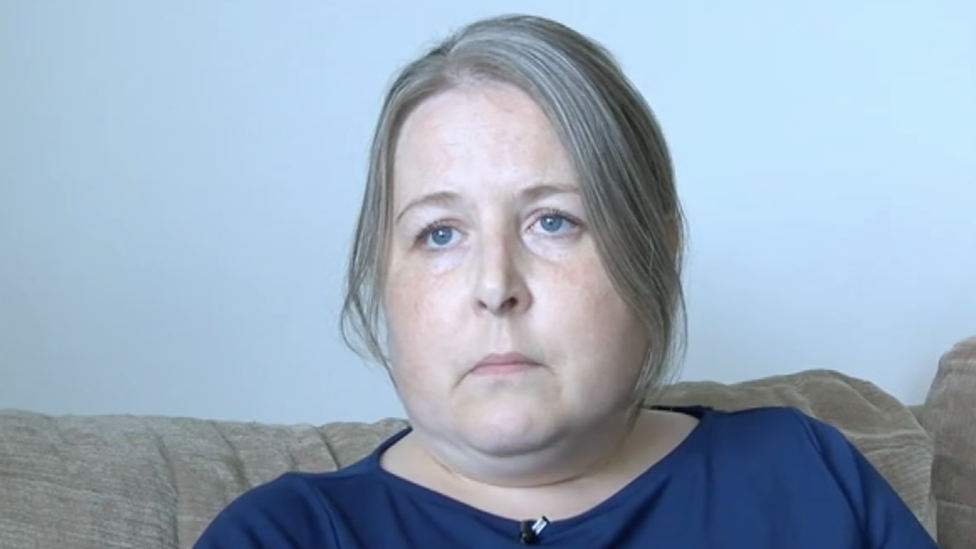
- Published7 June 2019
